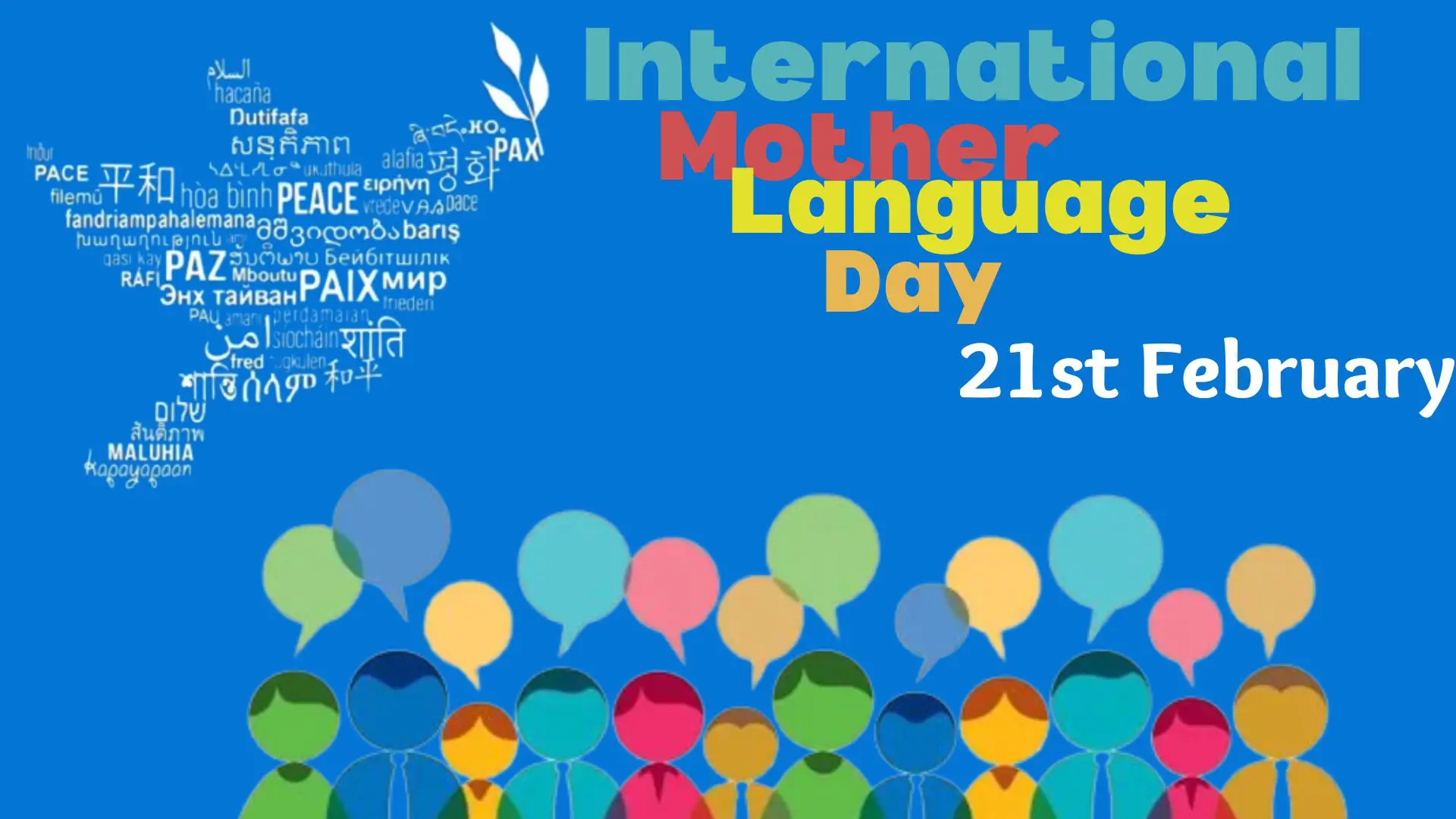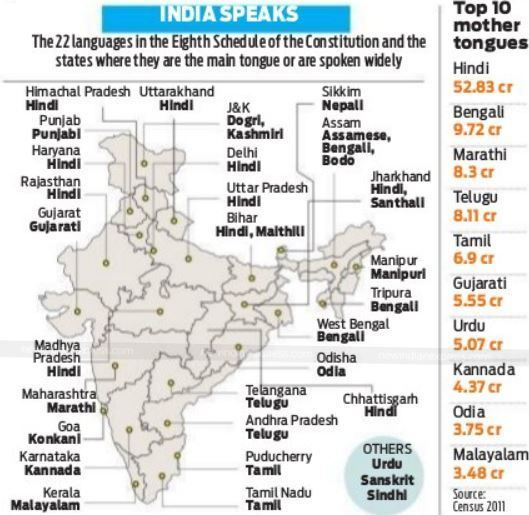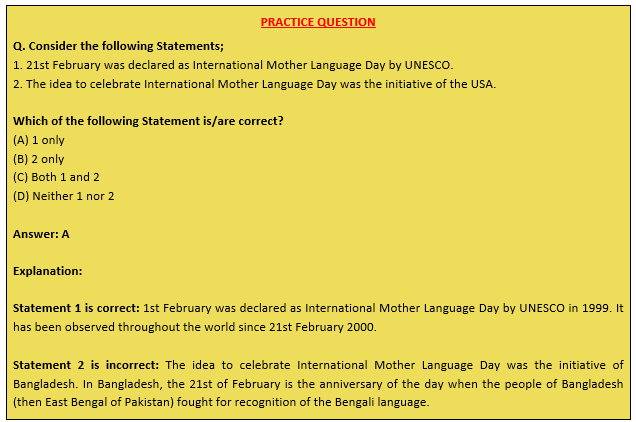Free Courses Sale ends Soon, Get It Now


Free Courses Sale ends Soon, Get It Now



Copyright infringement not intended
Context: International Mother Language Day is celebrated on 21st February 2023 with the theme “Multilingual education – a necessity to transform education" to promote awareness about linguistic and cultural diversity and to promote multilingualism.
Historical Background
International Mother Language Day
Mother tongues in India

Development of the Hindi Language

Must Read: https://www.iasgyan.in/daily-current-affairs/official-language-15
https://www.pib.gov.in/PressReleasePage.aspx?PRID=1900994
© 2024 iasgyan. All right reserved